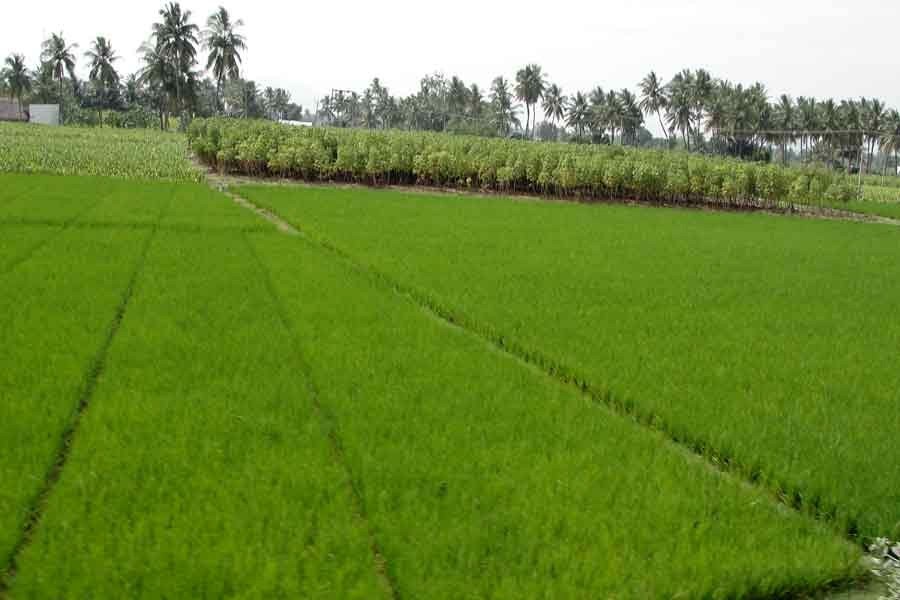The share-cropping system- defined as sharing the output between a landlord and his tenants in lieu of renting out/in land --had been the predominant tenancy system in Bangladesh since time immemorial. The system is generally criticised for its inherent exploitative and anti-incentive syndromes that allegedly deter optimal output from given resources such as land. It is because the owner of the land shares one-half of the output for renting out the land without paying a penny for the inputs a tenant uses to raise productivity of his land which ultimately raises the value of the land. However, with the spread of modern paddy and wheat cultivation system across the globe, some changes in the contractual arrangements could be noticed in different parts including Bangladesh.
But before one sheds light on the context and the impacts of rural tenancy market, it would be pertinent to scan through the established theoretical perspectives of such markets. The debate dates back to a few hundred years. More than 300 years ago, Adam Smith argued that the system of share-cropping is inherently 'exploitative', and injects no incentive to tenants for investment in modern inputs. Smith took for granted that both land owner and tenant would find no incentive to invest in land. On the other hand, later on, Alfred Marshall held a stronger view against share-cropping system. He argued that, in addition to the negative impact on long-term investment from both the parties, the tenant would also lose the incentive to cultivate land intensively and efficiently. It is simply because his sweat under the sun would reap home only one-half of the additional output. So, why work harder? That means, labour-inputs under share-cropping would be less than other tenancy arrangements to impinge negative impact on the total output. In such a "loss-loss" situation, incomes of both landowner and tenant might go down.
Of course, one economist (Cheung) offered a compromise solution arguing that, if proper mechanisms could be developed to ensure that the tenant supplies optimal amount of labour, share-cropping could be as efficient as other arrangements. In fact, he suggested three such mechanisms where sharing of the input costs one. But other economists opined that, with the development of agriculture, share-cropping is expected to surrender wider space to the fixed-rent system and, in course of time and under a system of information symmetry, share-cropping might even cease to exist. How far the trend is true in case of Bangladesh is a matter of research. In the following paragraphs, we shall attempt to put the proposition on an empirical plane by drawing upon some field level data.
First, the proportion of land under own cultivation significantly declined from about 77 per cent in the 1980s to 53 per cent in the most recent years. That means, owners of land rent out land and possibly go out of agriculture to earn livelihoods. Second, the proportion of land under tenancy (rented land) increased from one-fourth of cultivated land to about one-half during the same period indicating that the number of tenants went up. And third, land under the traditional exploitative (and disincentive to farmers) like share-cropping system has almost been constant over time and it seems it is ready to leave space for the newly emerging and relatively more lucrative alternative options, such as fixed-rent or mortgage system. The economic reasons behind the shift in preference is mainly the incentive to work harder, which is almost absent in share-cropping system. As a result, increased use of modern inputs in agriculture takes place leading to enhancement of yield and production levels.
The status of different sizes of farm households in the tenancy market may be analysed for the purpose. The purpose here is to know who are engaged in tenancy in rural Bangladesh. Most of the tenants are small and marginal farmers. The small and marginal farmers rent in land for two main purposes. On the one hand, it is economical for them to rent in land and, thus, increase the capacity use of their farm establishments. On the other hand, they think that tenancy is socially more prestigious than working as day labourers in others' land. By and large, about 57 per cent of the transacted lands are operated by households who own less than 0.2 ha, and 38 per cent are controlled by those who own 0.2 to 1 ha of land.
Of course, the tenancy arrangement could also be seen in terms of land ownership groups. About one-third of rural households used to cultivate under share-cropping arrangements in the 1980s; the share of late has reached about 36 per cent. Side by side, the proportion of households under fixed-rent system increased from about 16 per cent to 24 per cent. Again, the share-cropping arrangement claimed about three-fourths of the tenancy lands in the base year. By 2014, for example, the share dropped to about half of the total tenancy. Thus, it appears that alternative tenancy arrangements are evolving over time and interestingly, share-cropping seems to be outpaced by the new arrangements apparently in favour of tenants. The more agricultural practices get diversified and mechanised, the more non-agricultural sector edges up, the more is likely to be the supremacy of the newer methods of contractual arrangements. In other words, farmers in Bangladesh have been moving from risk-averse to risk-lover farming systems. That shift might warrant special attention to tenants or Borgachashis in terms of access to credit at concessional rates to meet working capital needs, securing the tenancy rights for a period that induces incentive to invest more in land and recognises tenants as important contributor to increased farm output, It must be admitted that due to increased size of the tenancy market, landless households could become de facto land owners with an important impact on rural labour market and wage rate.
Abdul Bayes is a former Professor of Economics at Jahangirnagar University and currently an Adjunct Faculty of East West [email protected]


